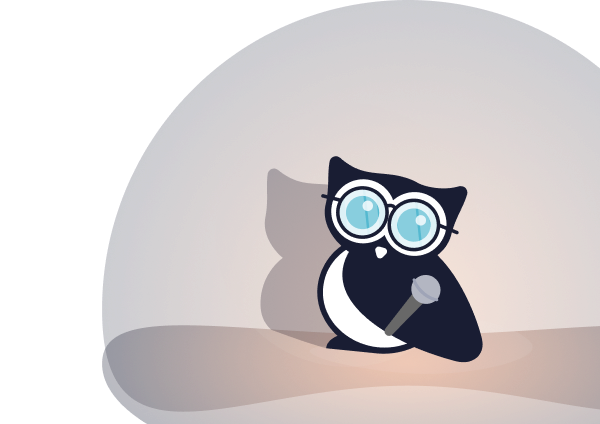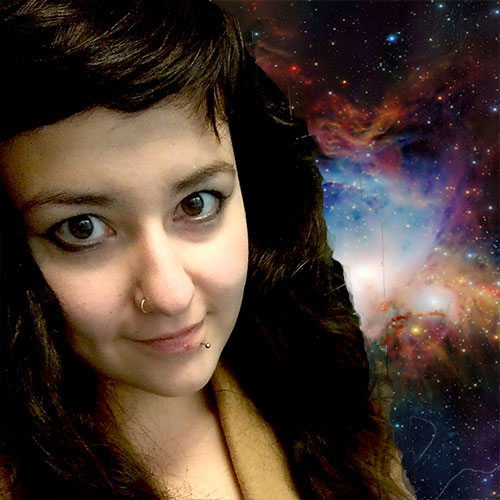
Write the Docs: The Secret History of Libraries – Paris Buttfield-Addison
By Catherine Heath on Writing docs from April 29, 2021
This talk at Write the Docs Portland was given by Paris Buttfield-Addison. Paris is a game developer by trade. His talk was about libraries, and he has a hobby of giving history talks at technology conferences.
What is a library?
Paris began his talk with this somewhat tricky question, which has a number of practical and theoretical answers:
- A library is a way that we can externalize knowledge and make it concrete and accessible – just like documentarians do with their documentation, and like maps do with geographic information.
- Libraries represent the sum of reading and knowledge of the individual readers who use them. They embody the memory of a community.
- A library is important to civilization and its advancements. A civilization documents its history in texts and a library preserves those texts.
- Libraries were also the pre-internet dawn of the information age, which really began when humans started making texts, so it’s tied to the birth of libraries. This is what makes libraries so especially relevant to documentarians.
- A library is more than simply a spontaneous creation.
The history of libraries
Paris then walked us through a brief history of libraries throughout the ages, which included some key milestones:
- The earliest libraries resemble what we would call an archive today. They were created to record accomplishments of the powerful.
- The Great Library of Alexandria was the prototype of a modern national library.
- As the world changed, so did libraries. Once Christianity appeared, its emphasis on the centrality of the bible prompted more people to read the Bible, written on papyrus.
- For the next ten centuries, the Roman Catholic Church gave libraries responsibility for looking after treasures, many of which were stored in boxes. Boxes also become valuable in their own right.
- At the end of the Middle Ages, Gutenberg developed moveable type, so the production of books became more prolific. The elite favoured papyrus but soon came round to the new printed material, and libraries followed suit.
At this point in time, the prevalence of books also changes reading habits inside and outside of libraries.
The middle class had an appetite for informational texts, while the poorer classes shared cheaply printed materials.
Wives and daughters read books from rich private libraries and interpreted them differently to their male counterparts. This is especially relevant when thinking about our audiences as documentarians and how our documents might be interpreted differently.
Libraries and communities
Paris then pointed out libraries' intrinsic connection to communities. Libraries stored the information and people did things with that information, which prompted communities to start to form within libraries. Initially, this sense of community had little to do with books; a library was something like a medieval Starbucks where people gathered without reading the books.
People wanted the knowledge, but they also wanted to do things with other people who had the knowledge. With the Enlightenment, libraries became more like what we know today. They started to cater more to the people who used them. Social libraries also formed and held activities around the knowledge.
Libraries go public
Paris also pointed out that funding sources also evolved. Though originally funded by the wealthy and powerful, in the mid-nineteenth century, taxes started to support public libraries.
The Boston Public Library was an early library.
Final remarks
Paris closed with a number of engaging observations. What stood out to our team the most are:
- Libraries tried to disseminate useful knowledge but the public mostly wanted to read novels. This meant public libraries were put in an awkward position because they were publicly funded. Users could check out two books from the library but only one could be a novel.
- As Paris noted, this can be a bit like our challenge as documentarians when we feel like no one wants to read the documentation.
- Documentarians are regarded by the organizations they serve similarly to early librarians. We’re technology obsessed and that’s a good thing, but we need to understand how people want to access their information.
- Are there equivalents to the beautiful boxes of bygone libraries in our current knowledge stores? Should there be? Is it possible to lure people in as they seek the thing they want (like a novel) while gradually exposing them to the full spectrum of knowledge we have available to share?
- The idea of a library as a place is a relatively new one in the history of libraries. Initially, libraries were based on the wishes of kings and other powerful individuals. Now, libraries provide a valuable place that strengthens the community they exist in. They are providing essential services where people can educate themselves and apply for jobs.
- Does this parallel also exist in the documentation world? How thoughtful should we be about space?
Paris's presentation covered a lot of ground in a small amount of space, and had one of the fanciest productions of any WTD presentation we've attended. It's well worth a watch if any of these ideas interest you!
Watch the full talk here.


Writing docs
(253)

General posts useful to all documentarians about writing documentation, editing and publishing workflows, and more.


Feature spotlight
(15)

Your flight plan for how to get the most out of KnowledgeOwl features and integrate them into your workflows.


Announcements
(21)

Major KnowledgeOwl company announcements.


Customer stories
(9)

Learn how others are using KnowledgeOwl & get pro tips on how to make the most of KO!


Company culture
(40)

Find out more about who we are and what we value.


Support
(75)

We believe good support is the foundation of good business. Learn about support tools and methodology.


Tools
(64)

Learn more about tools to solve various documentarian issues, within and beyond KnowledgeOwl.


All
(384)

Not sure what category you need? Browse all the posts on our blog.

Got an idea for a post you'd like to read...or write?
We're always looking for guest bloggers.
Learn moreStart building your knowledge base today
- 30 days free (and easy to extend!)
- No credit card required
- Affordable, transparent pricing
- No cost for readers, only authors
Want to see it in action?
Watch a 5-minute video and schedule time to speak with one of our owls.


